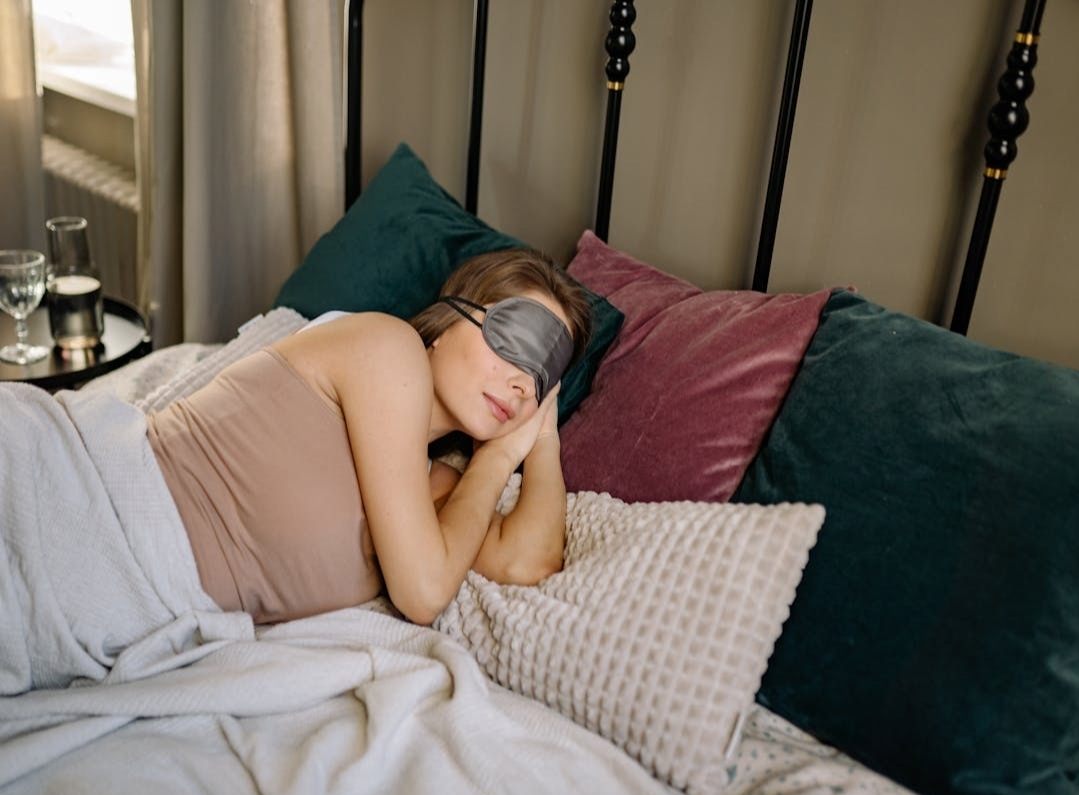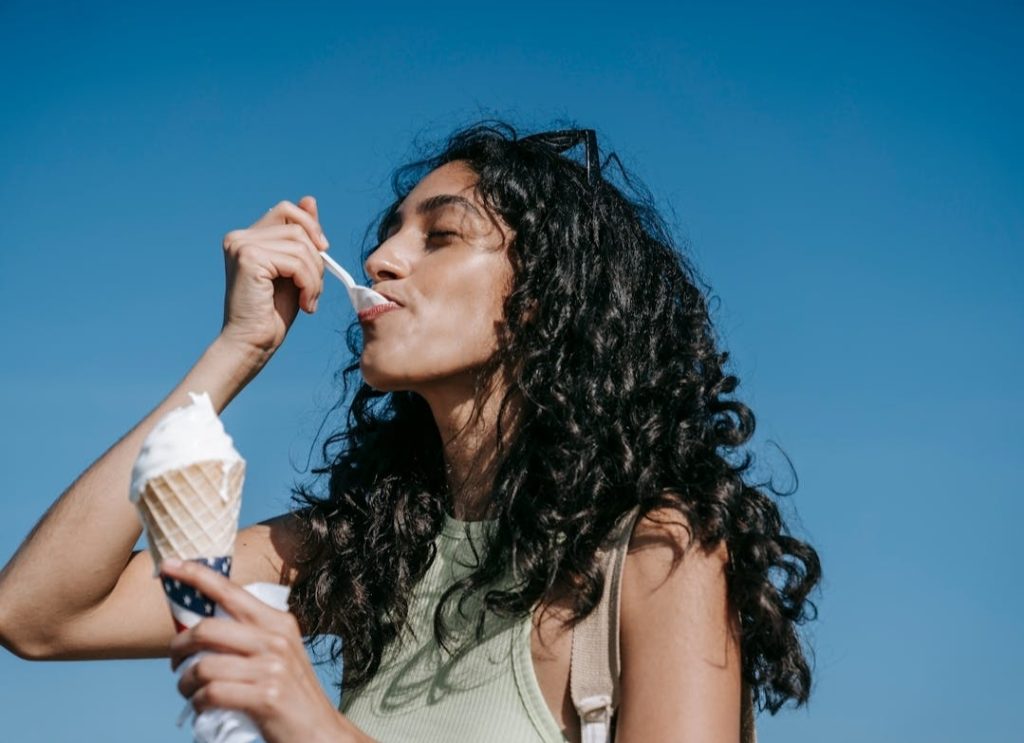Getting your beauty sleep is more than just a popular saying. Research has found that having just two days of sleep deprivation can negatively impact your attractiveness.
A lack of sleep increases the stress hormone cortisol, which can cause breakouts, as well as the hunger hormone ghrelin, which causes us to feel hungrier, increases our food intake, and promotes fat storage.
On the other hand, getting plentiful sleep stimulates our collagen production, which helps to repair wrinkles and sun damage. Sleep can also help to regulate our hormone levels, reducing stress and breakouts.
We invest so much into our beauty products, makeup and beauty treatments – so why not also invest in quality sleep?
Here are a few ways you can improve your sleep for better skin.
Sleep on your back, with your head elevated
If, like me, you’re a side or front sleeper, you’ve probably woken up to find wrinkles and puffy eyes, after pressing your face into your pillow all night.
Train yourself to sleep on your back – as difficult as this might seem, this reduces the premature wrinkles you will get from sleeping against your pillow. If a regular pillow can’t compel you, some companies also sell pillows in shapes that are specifically designed to encourage sleeping on your back.
Try also to sleep with an extra pillow placed under your head – the slight elevation of your head will help to reduce the swelling of eye bags.
Upgrade your pillowcase
If you simply can’t get used to sleeping on your back, then make sure to upgrade your pillowcase and wash it regularly.
A good silk pillowcase won’t harshly pull on your skin and will help to minimize the wrinkles you get from sleeping on your face.
You should also be regularly washing your pillowcase at least once a week. When we sleep on our face, our pillowcase catches our skincare products, drool, and leftover makeup, and the bacteria from these substances then wipe off onto our face, causing breakouts.
Turn down the temperature
Lower your bedroom temperature to 65-68 degrees Fahrenheit (or approximately 16-20 degrees Celsius). This might feel cold, but your body’s temperature naturally drops in the evening.
A cool room will help to improve your blood flow while you sleep, which oxygenates your skin and improves your skin tone.
Plus, the less energy that your body spends on lowering its temperature, the more it can spend on repairing your skin.
Stay hydrated
Since we’re unable to keep ourselves hydrated while we sleep, our skin loses moisture throughout the night. As such, it’s important to ensure you drink eight glasses of water during the day.
If your bedroom has dry air, which is likely to happen if air conditioning is constantly running, then try using a humidifier near your face to add moisture back into the air.
Make sure you are also using a thick hydrating moisturizer as part of your nighttime beauty routine. Ideally, this should be something heavier than what you use during the day, as it will help keep your skin nourished while you sleep.
Eliminate distractions before and during bedtime
Try to eliminate the use of bright lights at night, and instead turn on dimmed, ambient light.
Put away your smartphone an hour before bedtime, as the blue light on your phone can disrupt your body’s natural release of melatonin, causing you to stay up late into the night.
If you’re not able to filter out all the light in your bedroom, try sleeping with a silk eye mask. The softness of silk will prevent your eyes from getting additional wrinkles while blocking out the light.
In addition to light, it’s also important to eliminate any noise that might keep you up or wake you too early the next day. If needed, block your ears with a pair of earplugs designed for quieter sleep. I’ve found that the sound of a fan can also be soothing.
Avoid eating before bedtime
Avoid eating any salty foods at least four hours before bedtime, as salt causes dehydration and fluid retention. These foods can cause fluids in your face to shift, thus giving you puffy eyes the next day.
Also try to avoid having caffeine or sugar at least four hours before bedtime, as these are stimulants that will interfere with your sleep.
If you really want to eat something, have some almonds or milk. These foods contain nutrients that will help to promote sleep, without disrupting your blood sugar levels.
You could also make yourself a cup of chamomile tea, which will relax you and help you fall asleep more easily.
Her Nexx Chapter invites you to join our free Community where women from around the world are connecting with each other’s stories, exploring different experiences, and transforming ideas.
The Future of Connection for Women








0 Comments